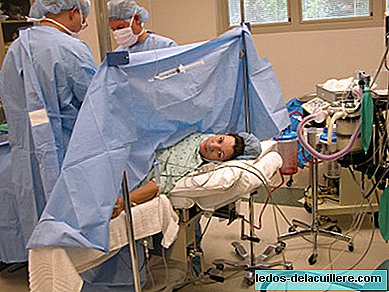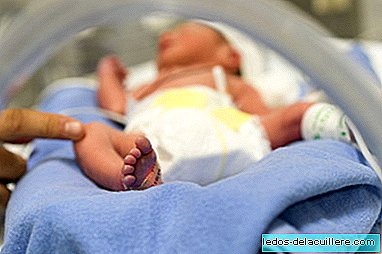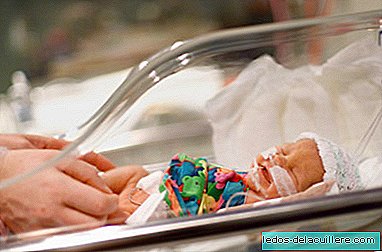
Caesarean delivery rates continue to increase worldwide, and although there are numerous studies that warn of the risks involved in abdominal surgery, there are still many caesarean sections that are still being practiced without a true medical cause that justifies them.
A recent study published in the scientific journal PLoS Medicine has just shown that the risks of caesarean section not only focus on the short term, but can also affect the health of the mother and the baby in the long term, as well as interfere in future pregnancies.
Risks associated with caesarean section
The American journal PLoS Medicine has carried out an analysis of the different studies published to date with respect to the risks and benefits of caesarean section, both for the mother and for the baby.
This review of studies, published on January 23, aims to raise awareness about the practice of this surgery, that although in many cases it is necessary and helps to save lives, in others it is not only not justified, but the woman is not informed in detail about the short, medium and long-term risks that this practice can entail.
Influence of caesarean section in future pregnancies
According to this study, caesarean section can negatively affect future pregnancies, increasing the chances of secondary infertility and raising the risk of spontaneous abortion, uterine rotuna and placenta previa.

Influence of caesarean section on the child's health
We have already seen on some occasion that according to studies, between 1.9% and 3.12% of the time, caesarean section can cause injuries or wounds in the baby which are normally located in the back and head.
In addition, birth by caesarean section is associated with an increased risk of allergies (among which would be allergy to cow's milk proteins), as well as an increased risk of immune and metabolic disorders.
To these added risks the following would be increased, according to this recent publication:
Increased risk of being overweight or obesity at five years.
Increased risk of developing asthma between six and 15 years. However, these new statistics do not associate cesarean birth with childhood asthma below six years.
In contrast, no relationship was found between cesarean birth and inflammatory bowel disease of the baby or atopic dermatitis.
Influence of caesarean section on mother's health
We have already repeatedly addressed the short-term risks of caesarean section for women: from bladder, uterus and wound infections, to urinary tract injuries and increased chances of bleeding and clots.

In addition, the recovery of caesarean section is usually slower and more complicated than that of a vaginal delivery, and in the medium or long term there may even be adhesions in the scar tissue that affect both the uterus and the abdominal muscles.
In contrast, according to this new study, caesarean section would minimize the risk of urinary and fecal incontinence, as well as uterine and vaginal pelvic prolapse; situations that they occur more frequently after natural birth.
Necessary and unnecessary caesarean sections
In an earlier study published in PLoS Medicine in 2016, it was collected that at that time Caesarean sections accounted for 19% of births worldwide, compared to almost 7% in 1990. Of this alarming percentage, the caesarean section rates of 41% in South America stood out (70% if we talk about Argentina), 32% in the United States and 24.5% of European countries.
According to WHO, only one in 10 deliveries should end up in caesarean section, a figure that is far from the rates of caesarean section recorded in many countries.However, the study makes it clear that "the data must be interpreted with caution", since depending on the case we are facing the circumstances that may lead to opting for a necessary caesarean section they would justify the risks that are assumed.
However, researchers consider it important that the patients are correctly informed on the short-term and long-term risks involved in this intervention, in order to reject inductions and cesarean sections that are not medically justified.
IStock photos
Via motherly
In Babies and More Cesarean, Natural birth












